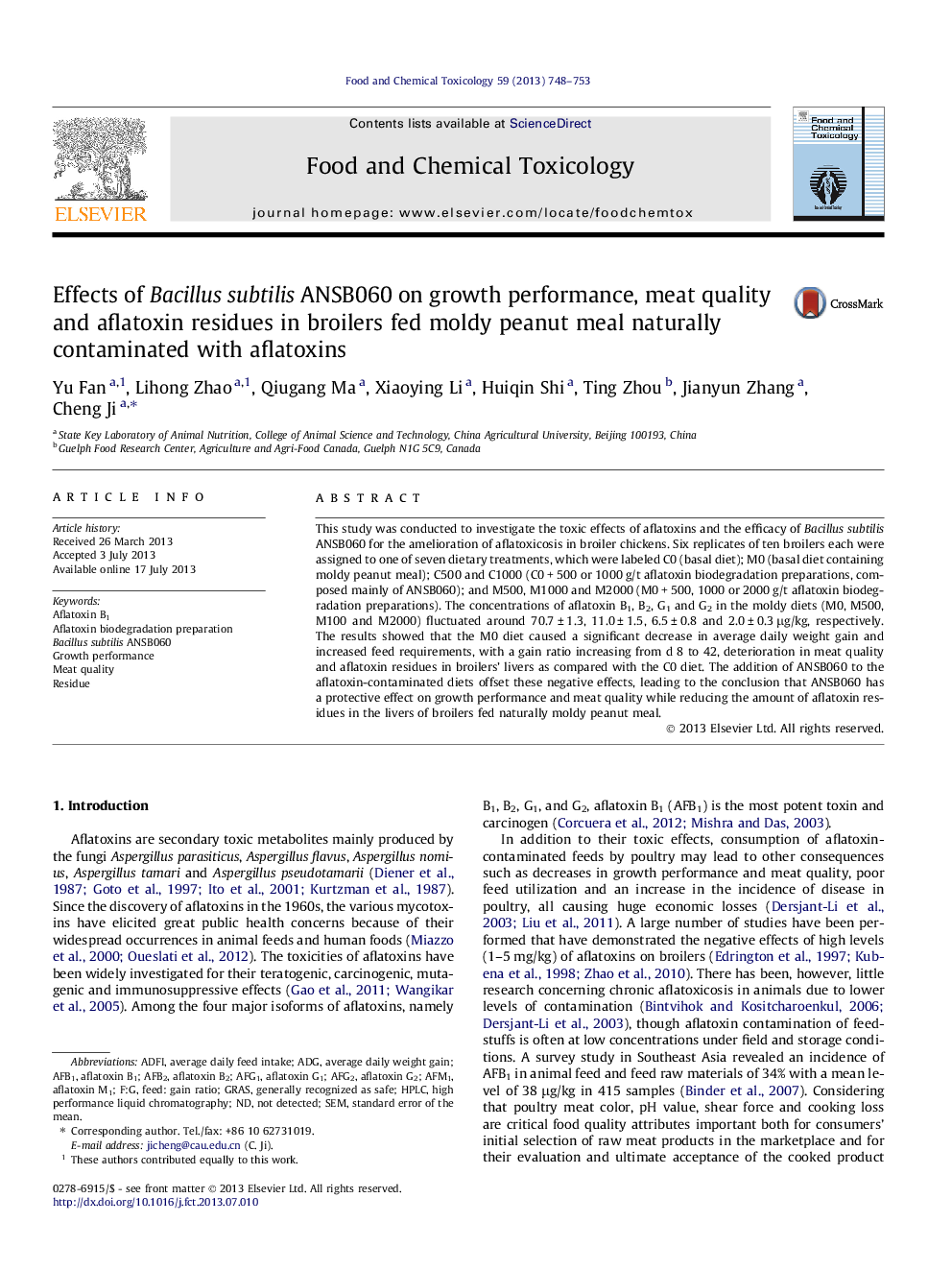| Article ID | Journal | Published Year | Pages | File Type |
|---|---|---|---|---|
| 5851159 | Food and Chemical Toxicology | 2013 | 6 Pages |
Abstract
This study was conducted to investigate the toxic effects of aflatoxins and the efficacy of Bacillus subtilis ANSB060 for the amelioration of aflatoxicosis in broiler chickens. Six replicates of ten broilers each were assigned to one of seven dietary treatments, which were labeled C0 (basal diet); M0 (basal diet containing moldy peanut meal); C500 and C1000 (C0 + 500 or 1000 g/t aflatoxin biodegradation preparations, composed mainly of ANSB060); and M500, M1000 and M2000 (M0 + 500, 1000 or 2000 g/t aflatoxin biodegradation preparations). The concentrations of aflatoxin B1, B2, G1 and G2 in the moldy diets (M0, M500, M100 and M2000) fluctuated around 70.7 ± 1.3, 11.0 ± 1.5, 6.5 ± 0.8 and 2.0 ± 0.3 μg/kg, respectively. The results showed that the M0 diet caused a significant decrease in average daily weight gain and increased feed requirements, with a gain ratio increasing from d 8 to 42, deterioration in meat quality and aflatoxin residues in broilers' livers as compared with the C0 diet. The addition of ANSB060 to the aflatoxin-contaminated diets offset these negative effects, leading to the conclusion that ANSB060 has a protective effect on growth performance and meat quality while reducing the amount of aflatoxin residues in the livers of broilers fed naturally moldy peanut meal.
Keywords
Related Topics
Life Sciences
Agricultural and Biological Sciences
Food Science
Authors
Yu Fan, Lihong Zhao, Qiugang Ma, Xiaoying Li, Huiqin Shi, Ting Zhou, Jianyun Zhang, Cheng Ji,
